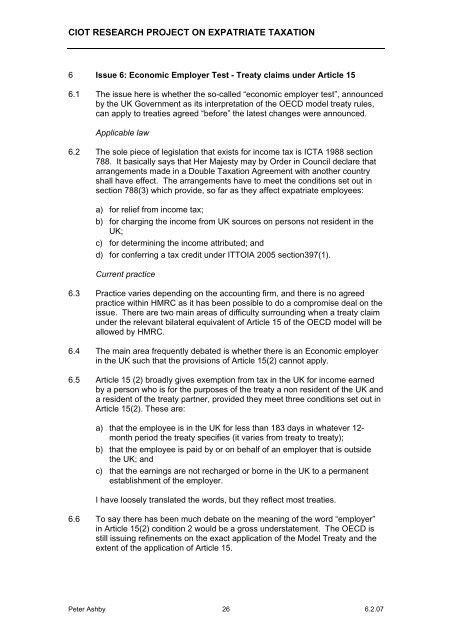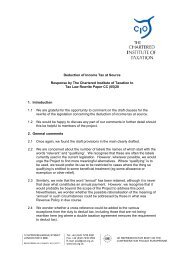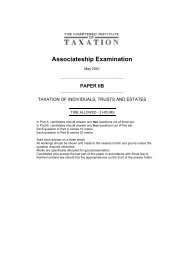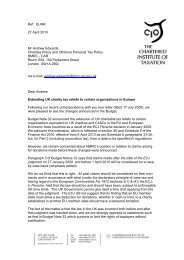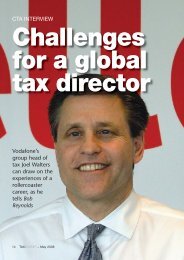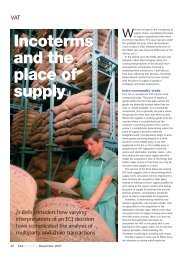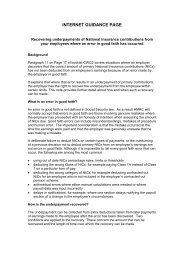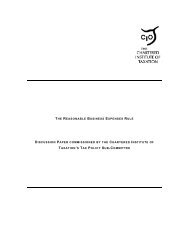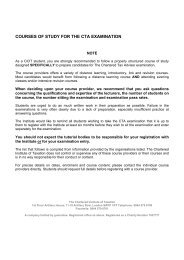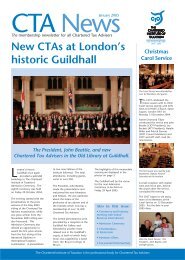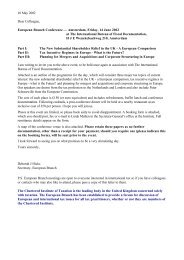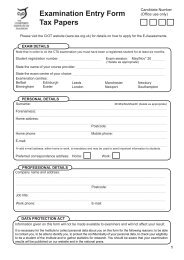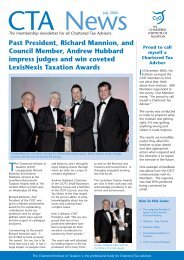Expatriate taxation - CIOT - The Chartered Institute of Taxation
Expatriate taxation - CIOT - The Chartered Institute of Taxation
Expatriate taxation - CIOT - The Chartered Institute of Taxation
You also want an ePaper? Increase the reach of your titles
YUMPU automatically turns print PDFs into web optimized ePapers that Google loves.
<strong>CIOT</strong> RESEARCH PROJECT ON EXPATRIATE TAXATION<br />
6 Issue 6: Economic Employer Test - Treaty claims under Article 15<br />
6.1 <strong>The</strong> issue here is whether the so-called “economic employer test”, announced<br />
by the UK Government as its interpretation <strong>of</strong> the OECD model treaty rules,<br />
can apply to treaties agreed “before” the latest changes were announced.<br />
Applicable law<br />
6.2 <strong>The</strong> sole piece <strong>of</strong> legislation that exists for income tax is ICTA 1988 section<br />
788. It basically says that Her Majesty may by Order in Council declare that<br />
arrangements made in a Double <strong>Taxation</strong> Agreement with another country<br />
shall have effect. <strong>The</strong> arrangements have to meet the conditions set out in<br />
section 788(3) which provide, so far as they affect expatriate employees:<br />
a) for relief from income tax;<br />
b) for charging the income from UK sources on persons not resident in the<br />
UK;<br />
c) for determining the income attributed; and<br />
d) for conferring a tax credit under ITTOIA 2005 section397(1).<br />
Current practice<br />
6.3 Practice varies depending on the accounting firm, and there is no agreed<br />
practice within HMRC as it has been possible to do a compromise deal on the<br />
issue. <strong>The</strong>re are two main areas <strong>of</strong> difficulty surrounding when a treaty claim<br />
under the relevant bilateral equivalent <strong>of</strong> Article 15 <strong>of</strong> the OECD model will be<br />
allowed by HMRC.<br />
6.4 <strong>The</strong> main area frequently debated is whether there is an Economic employer<br />
in the UK such that the provisions <strong>of</strong> Article 15(2) cannot apply.<br />
6.5 Article 15 (2) broadly gives exemption from tax in the UK for income earned<br />
by a person who is for the purposes <strong>of</strong> the treaty a non resident <strong>of</strong> the UK and<br />
a resident <strong>of</strong> the treaty partner, provided they meet three conditions set out in<br />
Article 15(2). <strong>The</strong>se are:<br />
a) that the employee is in the UK for less than 183 days in whatever 12-<br />
month period the treaty specifies (it varies from treaty to treaty);<br />
b) that the employee is paid by or on behalf <strong>of</strong> an employer that is outside<br />
the UK; and<br />
c) that the earnings are not recharged or borne in the UK to a permanent<br />
establishment <strong>of</strong> the employer.<br />
I have loosely translated the words, but they reflect most treaties.<br />
6.6 To say there has been much debate on the meaning <strong>of</strong> the word “employer”<br />
in Article 15(2) condition 2 would be a gross understatement. <strong>The</strong> OECD is<br />
still issuing refinements on the exact application <strong>of</strong> the Model Treaty and the<br />
extent <strong>of</strong> the application <strong>of</strong> Article 15.<br />
Peter Ashby 26 6.2.07


